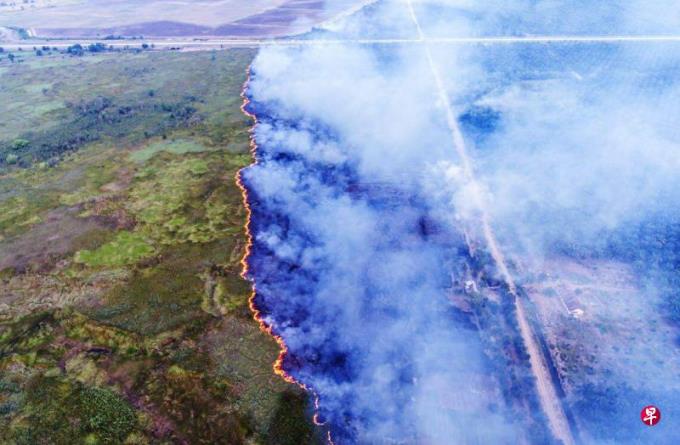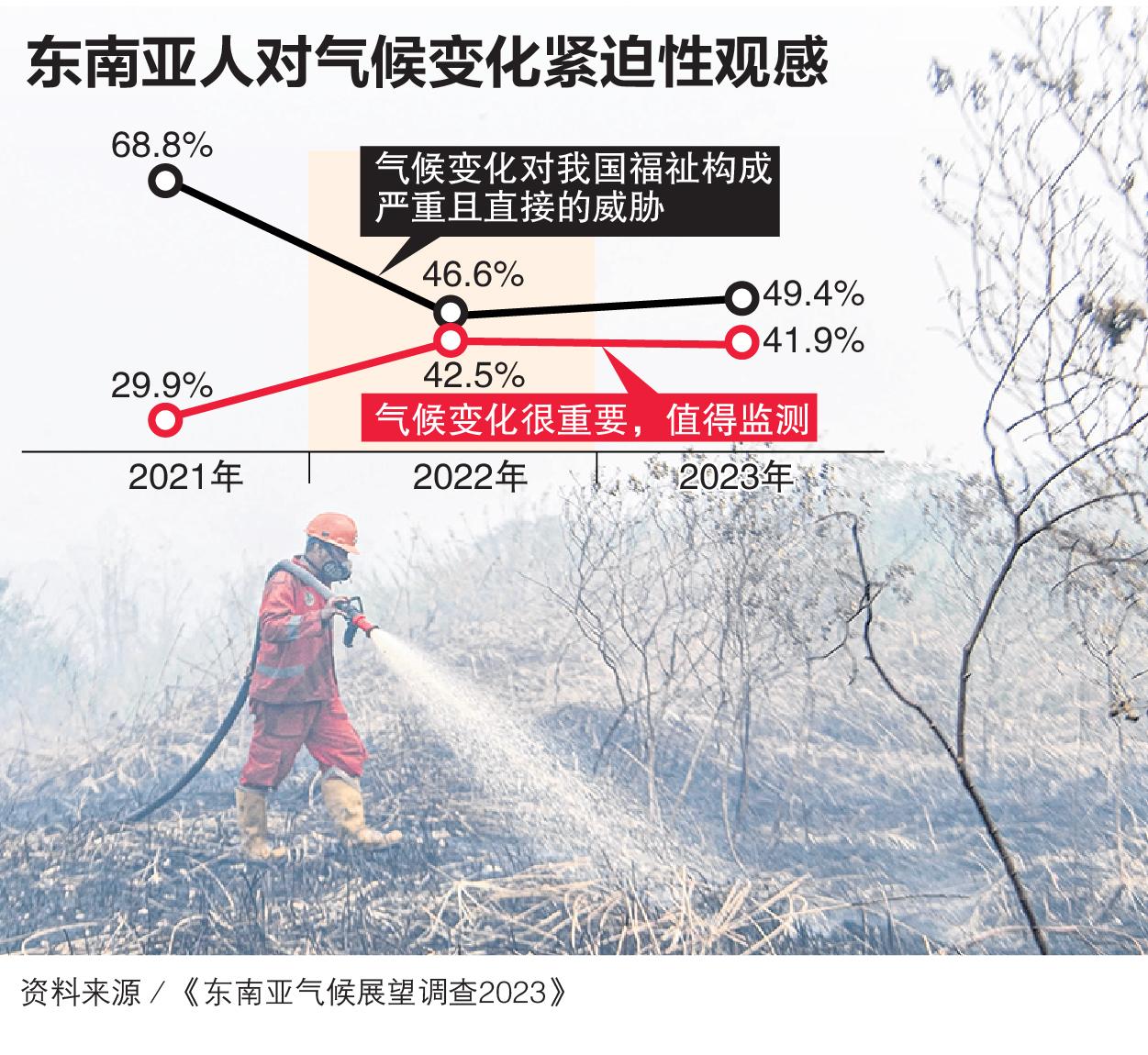
The global temperature set the highest record in 174 this year, and the impact of many types of climate change in Southeast Asia failed to avoid high temperatures.However, only 49.4%of Southeast Asian interviewees believe that climate change has a serious and direct threat to themselves and national well -being, which is nearly 20 percentage points from 2021.
Singapore's Yusov Isa East South Asia Research Institute issued a Southeast Asian Climate Outlook Survey 2023 report on Thursday (September 21). The survey was conducted from July to August this year.Feedback, show and discuss the understanding and attitude of Southeast Asian people on climate change.

The survey shows that most interviewees recognize the seriousness of climate change, but they believe that the ratio of respondents who directly threaten themselves to the well -being of the country is only half.Compared with 68.8%in 2021, it can be said to have dropped significantly.Several scholars pointed out at the discussion of the report that interviewees may pay more attention to the economic recovery, domestic politics and peace, and personal clothing, food, housing and transportation after the crown disease epidemic.
Senior Researcher, a senior researcher at the Ayan Research Center of the Southeast Asian Research Institute, said that for the people of Myanmar, the human rights crisis of the country may be more urgent; in Malaysia and Indonesia, people are more concerned about their national elections.
Malaysia held this year's this year's A href = "https://www.zaobao.com/keywords/Ma-no-la-zhou-xuan-ju" rel = nofollow target = _blank> Six State Elections also ended in August.Recently, Indonesia has also stepped up to meet the national elections in February next year.
However, Lilian also emphasized that although the climate threats have decreased, the people in Southeast Asia have actually strengthened the serious understanding of climate issues as a whole.The ratio of the interviewed interviewees that identify with climate issues is very important, from 29.9%in 2021 to 42.5%this year.She also said that although people realize that climate change cannot be underestimated, at the same time, she also has a certain optimistic view, and believes that she can work together to deal with and solve it.
Xu Anqi, assistant professor of public policies and environmental energy ecological projects at the University of South Carolina University of South Carolina, pointed out that only when people experience climate change such as air pollution, they will truly realize that climate threats are imminent.
Zhou Xianglong: The exposure and attention of climate problems have decreased
Associate Professor of the Academy of Comprehensive Academy of Singapore Management University and urban climate scholar, Zhou Xianglong, uses the movie to make it clear that "many things occur around the world at the same time", such as the Russian and Ukraine War, digital security, artificial intelligence (AI) wave, etc.These topics occupy the focus of media reports, and the exposure and attention of climate issues have declined.
The founder and managing director Zhan Sizheng, the founder and managing director of environmental media and consulting companies, pointed out that climate topics are profound and complicated, but the climate reports of mainstream media at this stage are often "surface" and should be deeper through deeper.Level, higher -quality reports to better popularize climate issues and related information to the society.
About 70 % of the respondents are "quite concerned" in the next three years of food supply
The survey report also explores the impact of climate change on food security in Southeast Asia. About 14%of the respondents believe that their country has "always" or "frequently" facing food security issues.The stability and burden of three years of food supply are "quite concerned."
Researchers pointed out that most Southeast Asian countries have a certain scale of cultivated land, and some are the main suppliers of global food.Against this background, climate change has led to the increasing frequency of extreme weather, which in turn has triggered food supply and price fluctuations, which has exacerbated the instability of food security in Southeast Asia.




